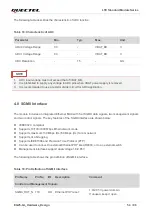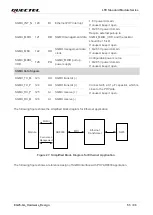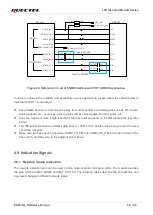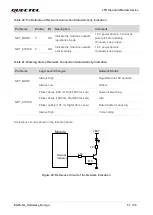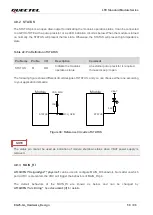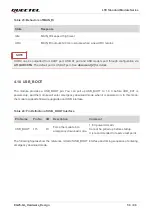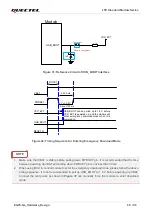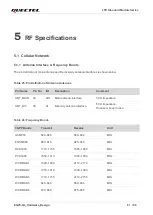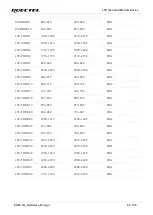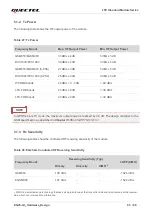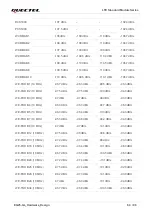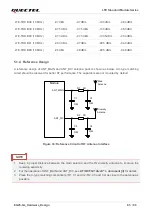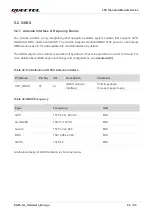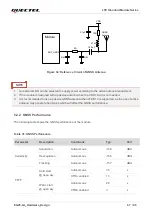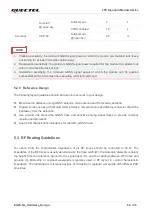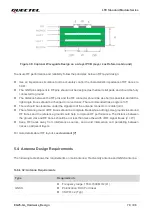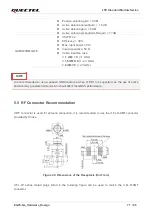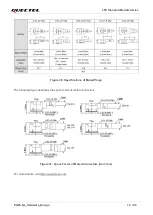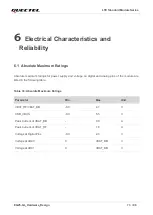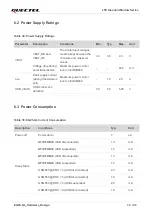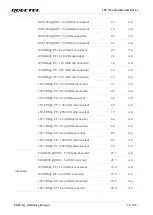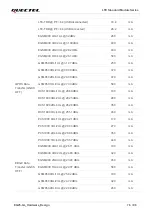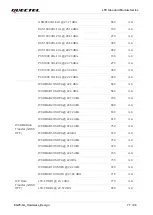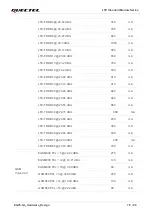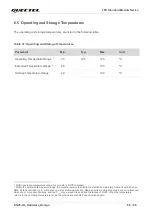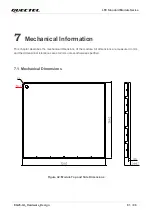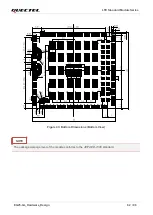
LTE Standard Module Series
EG25-GL_Hardware_Design 68 / 96
1. Tracking sensitivity: the minimum GNSS signal power at which the module can maintain lock (keep
positioning for at least 3 minutes continuously).
2. Reacquisition sensitivity: the minimum GNSS signal power required for the module to maintain lock
within 3 minutes after loss of lock.
3. Acquisition sensitivity: the minimum GNSS signal power at which the module can fix position
successfully within 3 minutes after executing cold start command.
5.2.3 Reference Design
The following layout guidelines should be taken into account in your design.
⚫
Maximize the distance among GNSS antenna, main antenna and Rx-diversity antenna.
⚫
Digital circuits such as (U)SIM card, USB interface, camera module and display connector should be
kept away from the antennas.
⚫
Use ground vias around the GNSS trace and sensitive analog signal traces to provide coplanar
isolation and protection.
⚫
Keep 50
Ω characteristic impedance for the ANT_GNSS trace.
5.3 RF Routing Guidelines
For user’s PCB, the characteristic impedance of all RF traces should be controlled to 50 Ω. The
impedance of the RF traces is usually det
ermined by the trace width (W), the materials’ dielectric constant,
the height from the reference ground to the signal layer (H), and the spacing between RF traces and
grounds (S). Microstrip or coplanar waveguide is typically used in RF layout to control characteristic
impedance. The following are reference designs of microstrip or coplanar waveguide with different PCB
structures.
Hot start
@ open sky
Autonomous
2
s
XTRA enabled
1.6
s
Accuracy
CEP-50
Autonomous
@ open sky
2.5
m
NOTE

